Coronavirus 2020: Stranded Australians to be evacuated from Wuhan
A Qantas plane has arrived to pick up Australians stuck in the coronavirus epicentre of Wuhan in China for evacuation to Christmas Island.
News
Don't miss out on the headlines from News. Followed categories will be added to My News.
- Travel insurance won’t cover deadly China virus ‘fear’
- Chinese coronavirus hospitals mask bigger issue at play
A Qantas plane has arrived to pick up Australians stuck in the coronavirus epicentre of Wuhan in China for evacuation to Christmas Island where they’ll be quarantined.
A Qantas flight bound for Wuhan via Hong Kong left Sydney yesterday afternoon. The flight is operated by a volunteer team of four pilots and 14 Qantas cabin crew, and will undergo several cautionary procedures both in-flight and once it’s landed.
Passengers will go through health checks before boarding and will wear surgical masks.
There will be a limited food and beverage service to minimise interaction between crew and passengers and the 747 plane will be thoroughly cleaned afterwards.
Federal health minister Greg Hunt confirmed an Australian medical assistance team with a mobile hospital had also arrived in the former detention centre of Christmas Island.
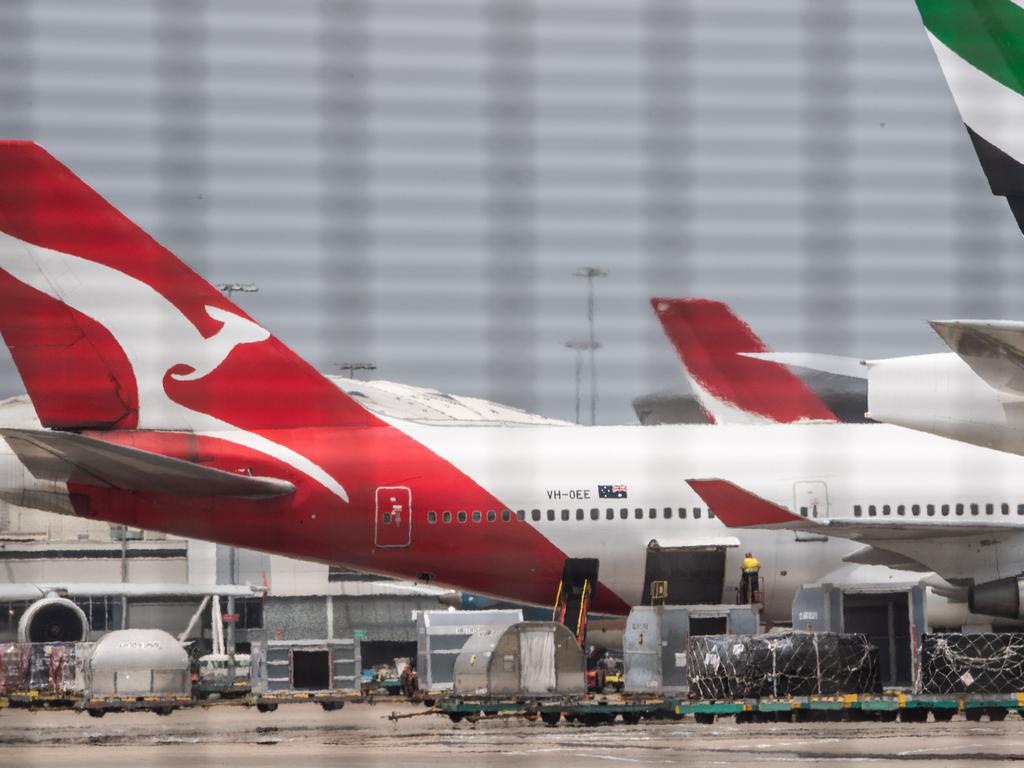
“Personnel are in place to receive the passengers from Wuhan and we expect that the flight will be collecting within the next 24 hours,” Mr Hunt told reporters in Canberra on Sunday.
The health minister also confirmed that more strict screenings will be in place for passengers arriving not only from Hubei province but all mainland China.
People who have been in mainland China since the start of February - excluding Hong Kong, Macau and Taiwan - are now advised to self-isolate.
Australians are also being told not to travel to mainland China.
Prime Minister Scott Morrison announced on Saturday foreign travellers who have left or passed through China will be denied entry to Australia aiming to stop the spread of the coronavirus.
There have been 12 confirmed cases of coronavirus in Australia.
There are now more than 14,000 cases of the virus globally, with just over 300 deaths.
CHINA CALLS IN MILTARY TO COMBAT VIRUS
It comes as China’s defence military has deployed 1400 medical personnel to staff a new hospital in Wuhan, the epicentre of the outbreak of the virus.
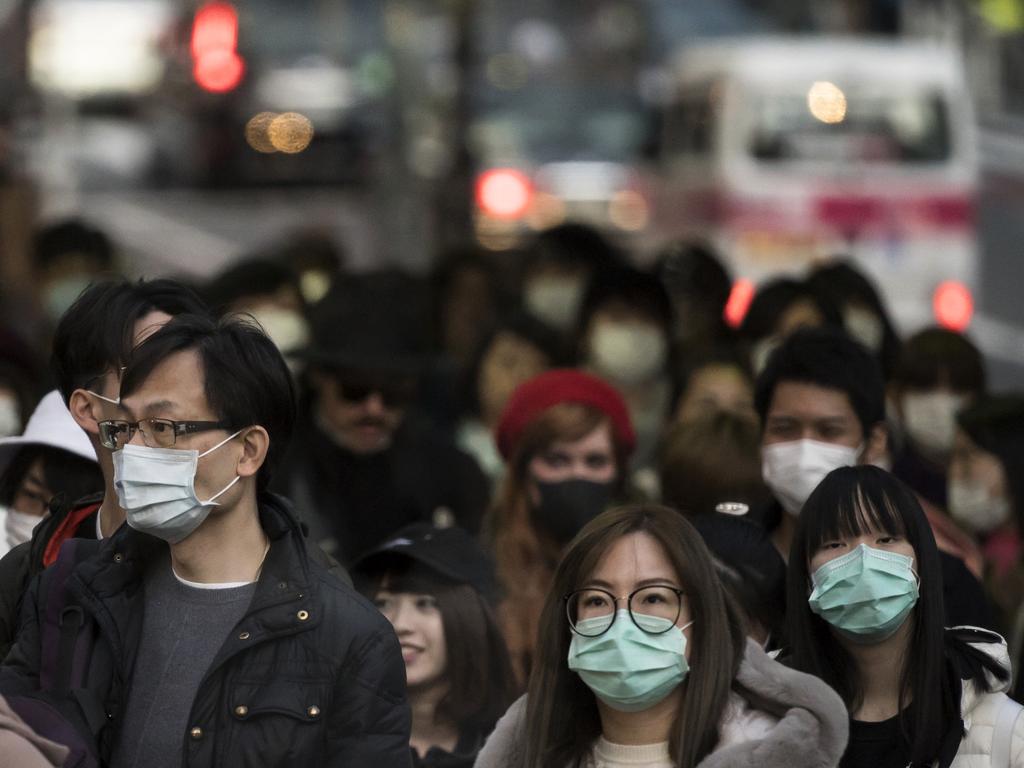
Upon direct order of Chinese President Xi Jinping, the People’s Liberation Army (PLA) Air Force has began airlifting 1400 medical staff as well as 58 tons of medical supplies to Wuhan, in Hubei province, the Chinese defence ministry said in a statement.
Many of the military doctors and nurses chosen for the job have experienced treating the severe acute respiratory syndrome (SARS) in 2003 or ebola in West Africa in 2014.
They are to join the 450 military personnel already in the city.
The Chinese military took control of the newly constructed Huoshenshan Hospital on Sunday after it was constructed in less than 10 days.
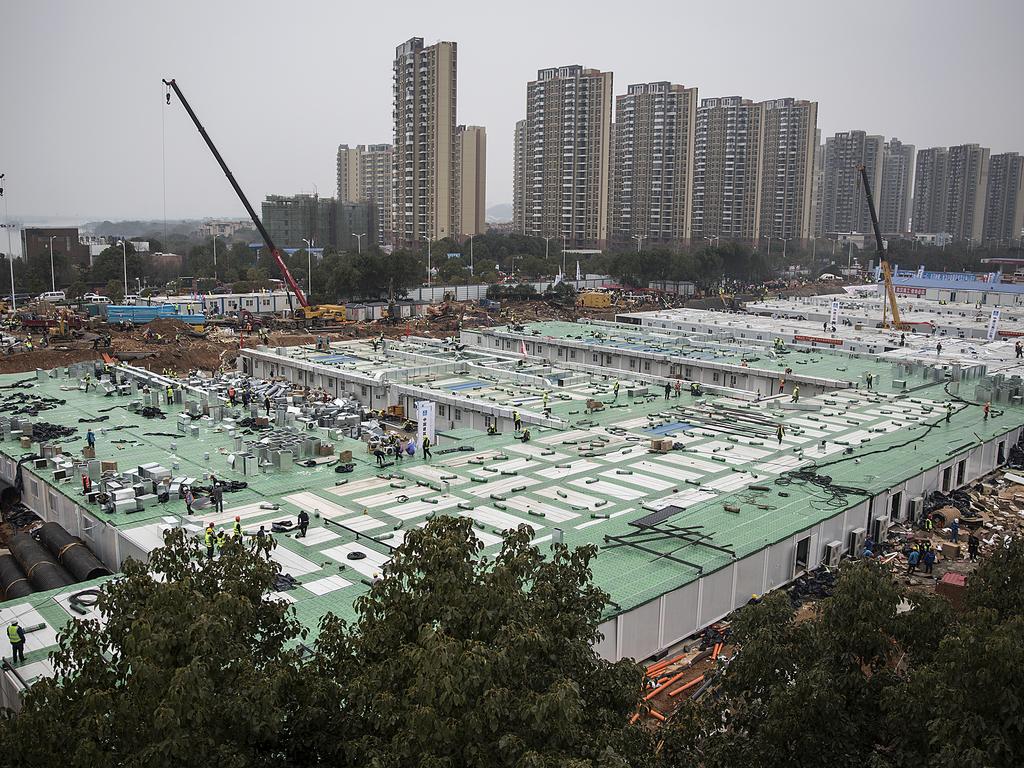
It is expected to open today and includes 1000 beds, intensive care units and sections for diagnosis and infection control, China’s state news agency Xinhua reported.
Chinese state media has been live broadcasting the construction of a second makeshift hospital in the city, the Leishenshan Hospital, which is expected to be in operation by Wednesday, the Bangkok Post reported. That facility is to include 1300 beds and will begin admitting patients on Monday.
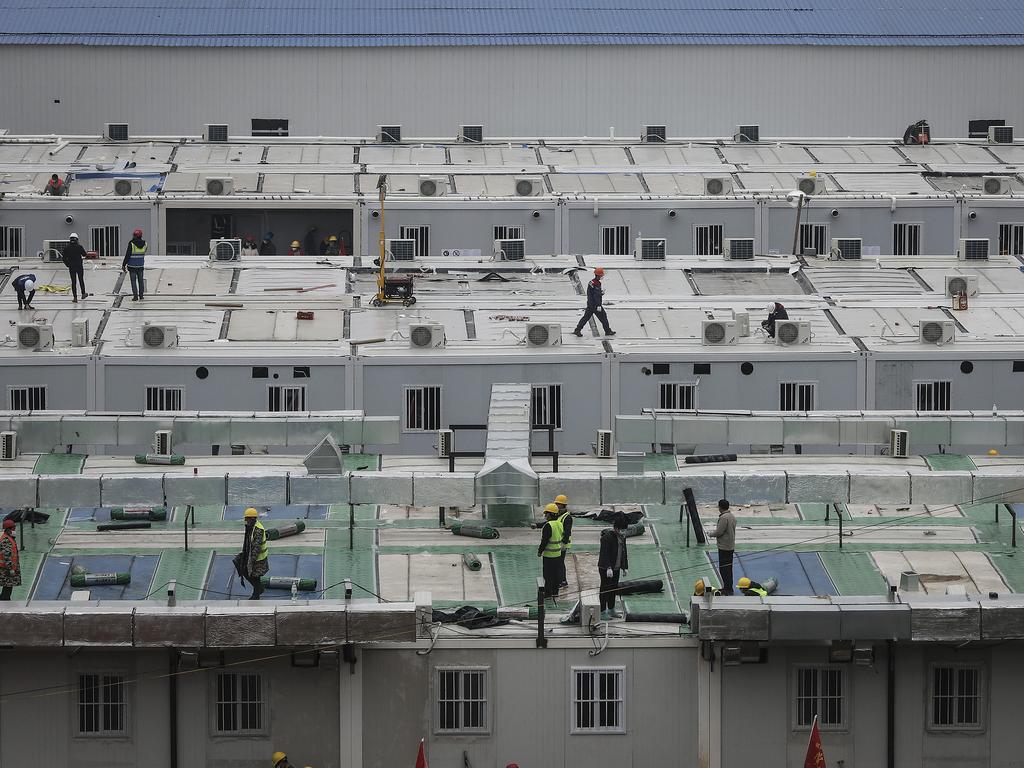
Over the weekend, a 44-year-old Chinese man visiting the Philippines died from the coronavirus, the World Health Organisation confirmed Sunday.
He and his female companion, who is currently hospitalised in Manila, both are from Wuhan and stopped in Hong Kong Jan. 21 before travelling to the Philippines.
The death was reported hours after Philippine’s President Rodrigo Duterte was to issue a travel ban on all non-Filipino citizens from China, including Hong Kong and Macau.
AUSSIE CORONAVIRUS PATIENTS DISCHARGED FROM HOSPITAL
Three of the four coronavirus patients in New South Wales have been discharged from hospital including a 21-year-old woman from UNSW who was given the all clear over the weekend.
Two men – aged 53 and 35 – were discharged on Thursday and a 43-year-old man remains in isolation.
There are 30 cases still undergoing investigation in the state.
Chief health officer Kerry Chant said seven of those patients had recently left China.
China is facing another outbreak about six hours from Wuhan – the epicentre of the coronavirus – where poultry were found to have the lethal H5N1 virus.
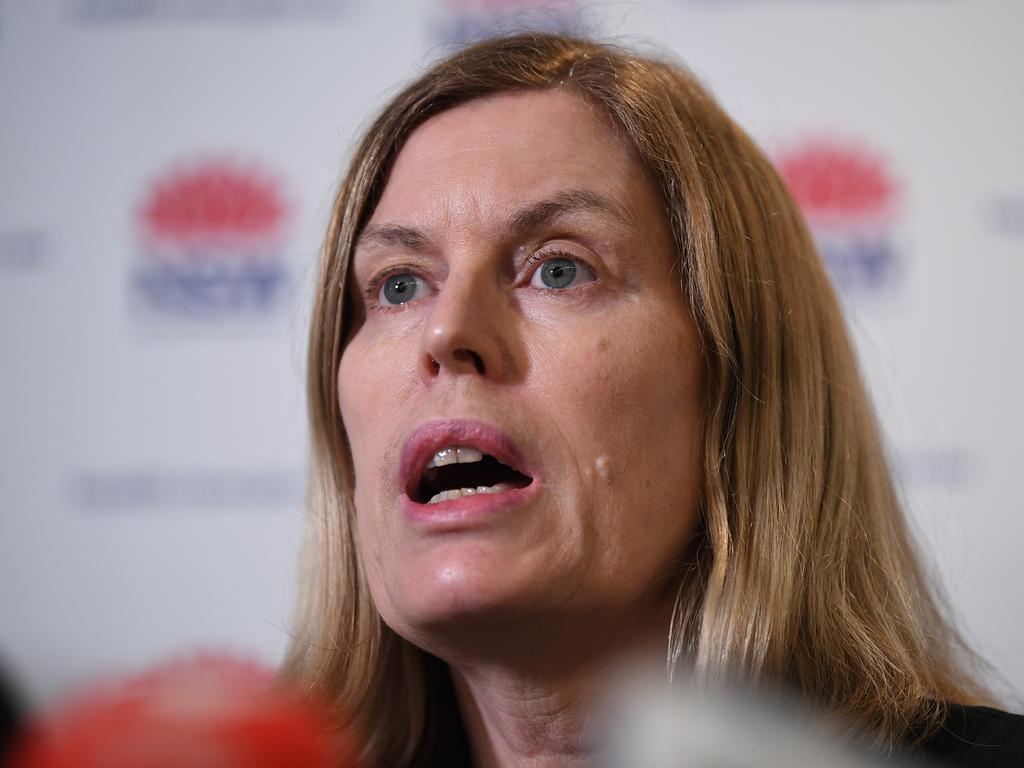
More than half of the Shaoyang farm’s 7850 chickens have died, according to the country’s Ministry of Agriculture, and a further 17,828 chickens have been culled in a bid to stem the outbreak.
According to the World Health Organisation (WHO), human cases of H5N1 “occur occasionally”, but generally require “close contact with infected or live birds”.
Approximately 14,380 cases of coronavirus have been confirmed worldwide, and at least 304 people had died. Twelve cases had been diagnosed in Australia.
The first death outside of China from the virus has been reported in the Philippines.
A 44-year-old Chinese man from Wuhan died on February 1, according to WHO.
The 38-year-old Chinese woman he travelled with from China to the Philippines has also tested positive to the virus.
FOREIGNERS BANNED FROM ENTERING AUSTRALIA
Foreigners who have travelled to China will not be allowed to enter Australia as the Morrison Government ramps up measures to try and stop the spread of the coronavirus.
The National Security Committee of Cabinet agreed to the ban on Saturday in response to what Scott Morrison described as a “an escalating threat and a constantly changing situation”.
The Government will also raise its travel advice for Australians wanting to go to China to level four which recommends Australians cancel their travel plans.
The entry ban will not apply to Australian citizens, permanent residents and their immediate family as well as aircrews. But those excluded from the ban will be asked to self-isolate for a period of 14 days.
Experts believe 14 days is the longest time it takes for people to develop symptoms after they’re infected with the virus.
The travel ban will be reassessed in a fortnight.
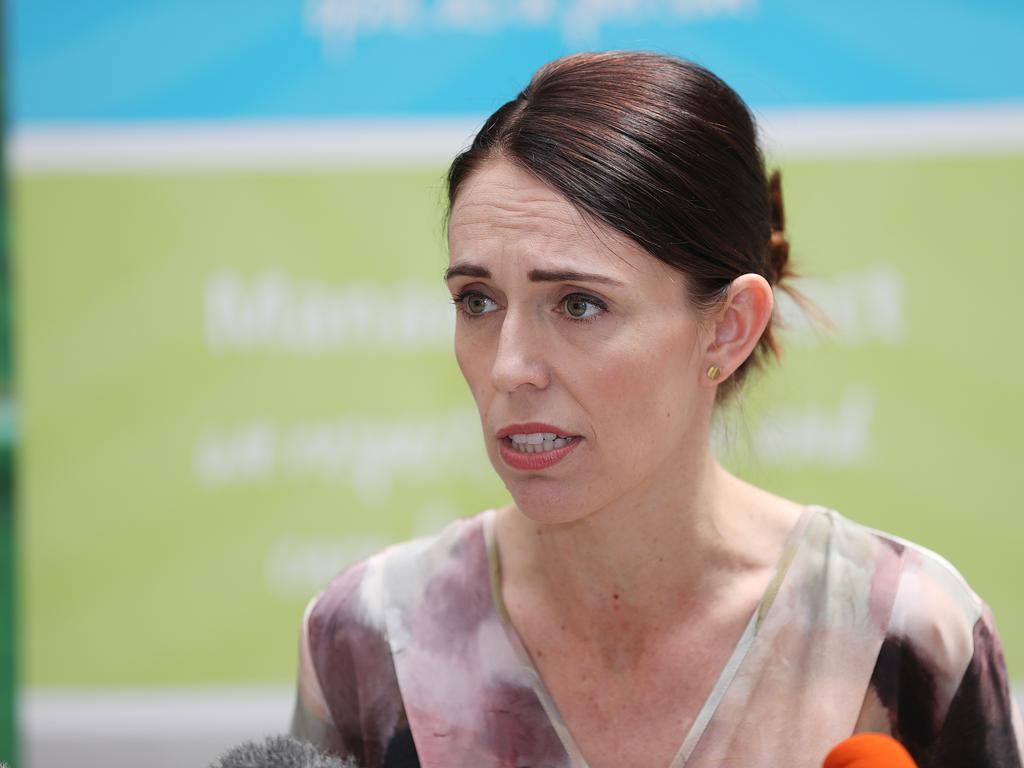
New Zealand has followed suit with Australia and announced a bar on all foreign nationals who have travelled through mainland China from entering the country from Monday.
New Zealand citizens, residents and their family members can still enter the country, but will have to self-isolate for 14 days upon their arrival.
“We have been advised by health officials that while there are still a range of unknowns in the way the virus is being transmitted, we should take a precautionary approach,” New Zealand’s Prime Minister Jacinda Ardern said in a statement.
There have been no confirmed cases of the virus in New Zealand.
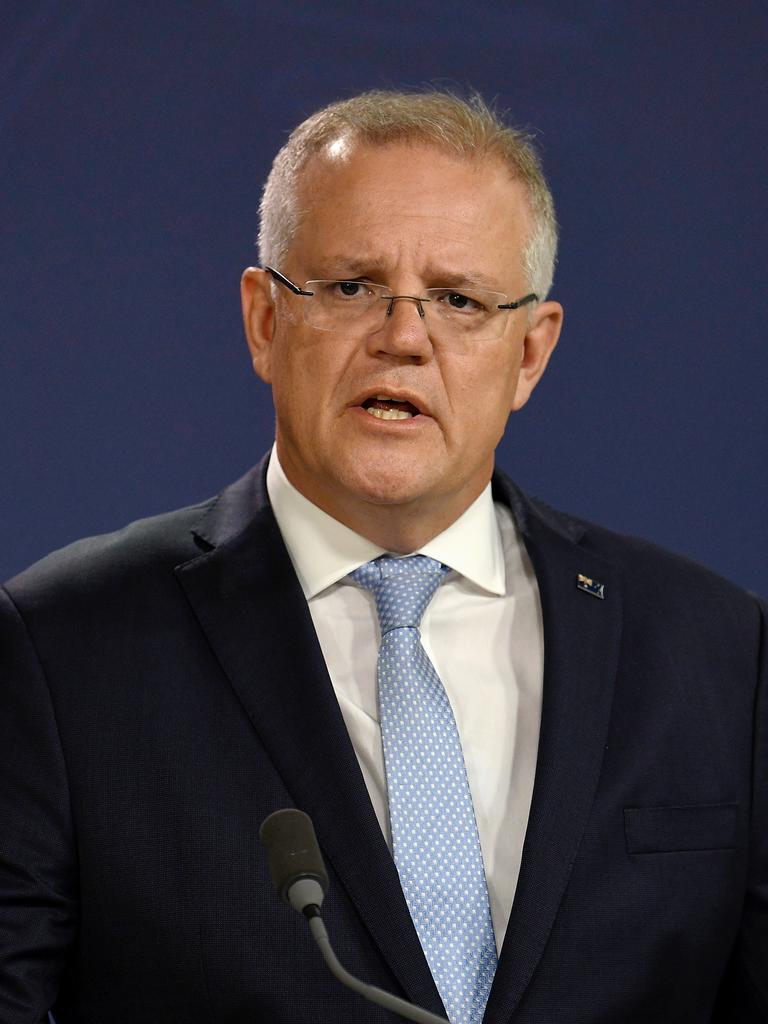
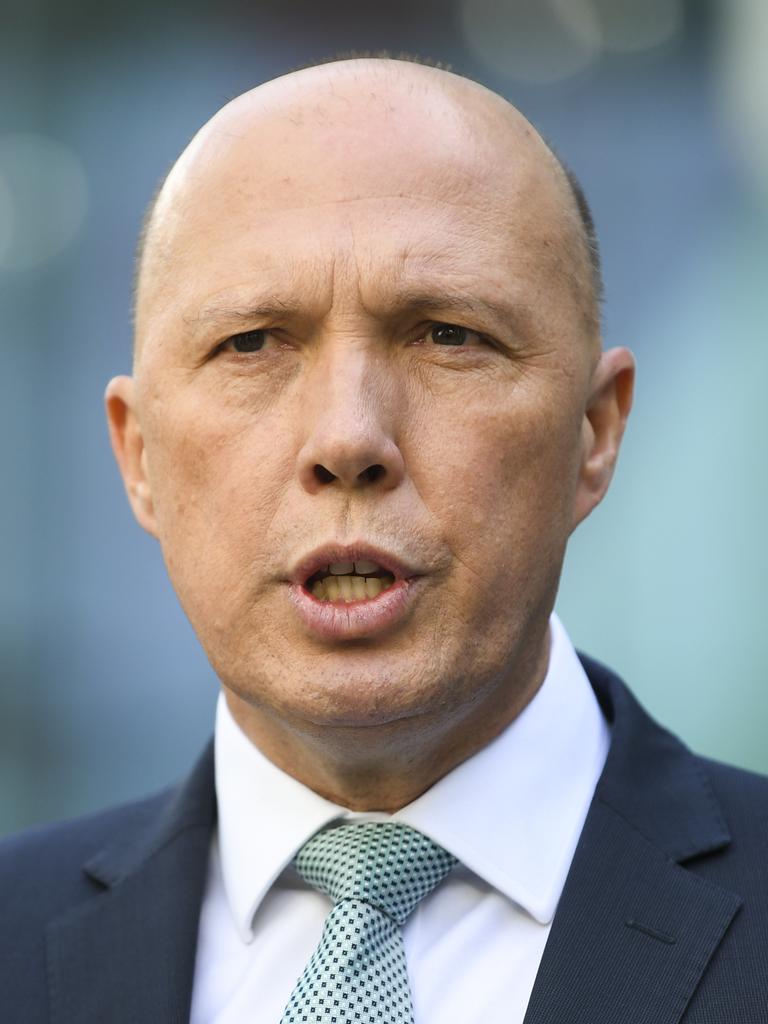
Prime Minister Scott Morrison said his first priority was the health and wellbeing of Australians.
“This enables Australians to be able to return and go through that process of self-isolation,” he said.
A dozen flights from mainland China to Australia have been cancelled and passenger arrival numbers plummeted overnight as the travel ban on non-citizens or permanent residents kicked in.
At least 72 foreigners who attempted to board a plane to Australia from China were stopped by airlines, while thousands more passengers followed advice and did not turn up to the airport for their trip since a temporary ban was announced on February 1.
Australian Border Force Commissioner Michael Outram said there was a significant decline in arrival numbers, with only 700 people arriving Melbourne in the last 24 hours instead of the normal 5000 passengers.
In Brisbane 97 people arrived instead of 220.
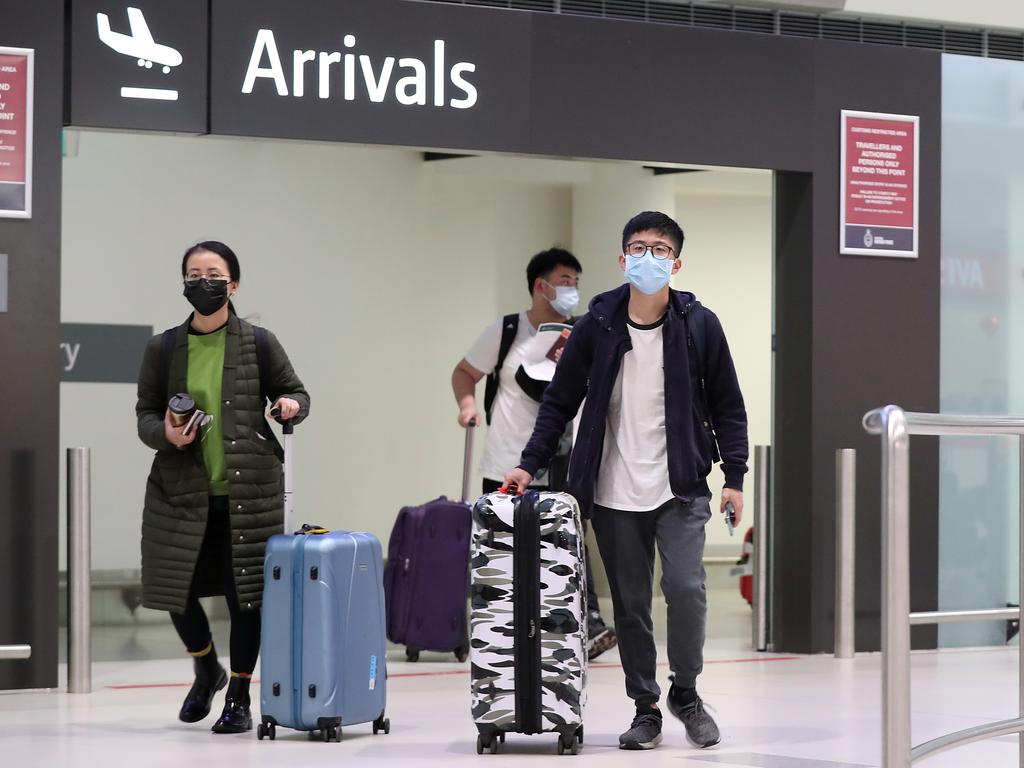
“People who were on a plane that was in the air before the direction was given to the airlines, of course, they’re subject to previous arrangements,” he said.
“But still, they’ve been met on those flights by biosecurity officers, and they’ve been asked questions and they’ve been the subject to health screening, including by state and territory health officials.”
Mr Outram said a “small number of people” – about two or three – were taken to hospital for further screening yesterday
“The announcement of the decision, the direction we’ve given to airlines has taken immediate effect as we intended,” he said.
So far 12 flights from China to Australia have been cancelled and about 80 have proceeded.
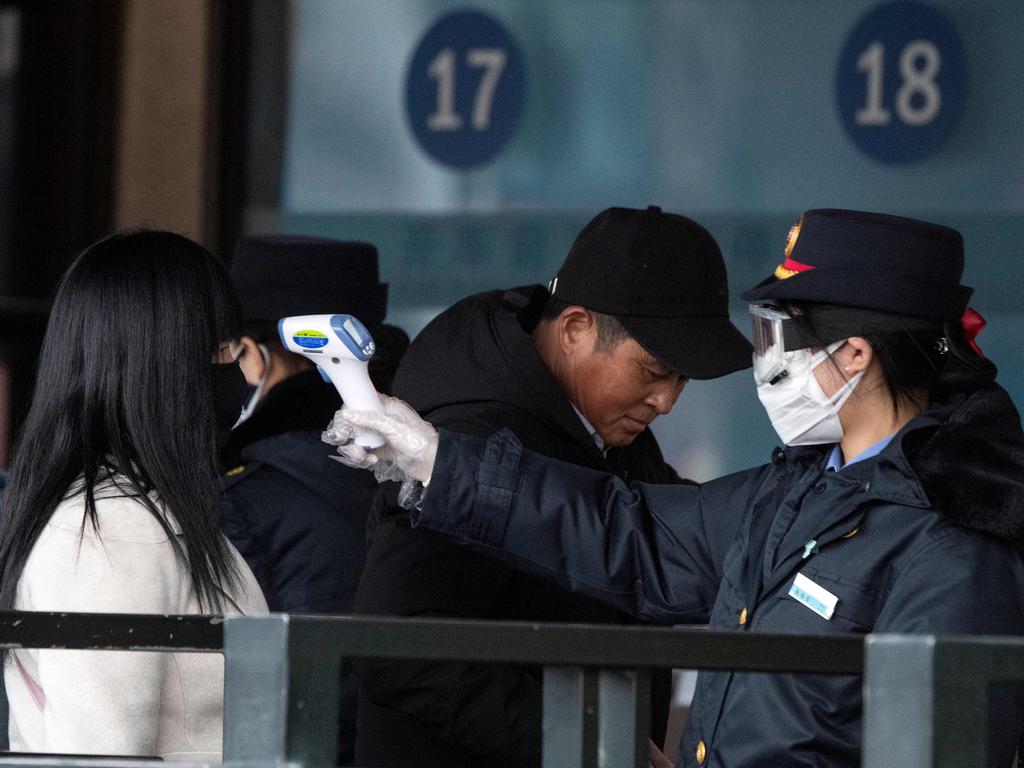
Mr Outram said Australia was “well placed” to implement the safety measures and warned people not to try and get around them.
“If you attempt to travel to Australia either directly or indirectly, your airline will not allow you to board the flight,” he said.
“If you do arrive in Australia, and it is determined that you have been in mainland China on or since February 1, 2020, your visa will be cancelled and you will be placed in an alternative place of detention for a quarantine period.
“Please do not attempt to travel to Australia unless you are an Australian citizen, a permanent resident or an immediate family member, until these measures are lifted.”
It came after Home Affairs Minister Peter Dutton said border and medical staff had been working through the night on Saturday to set up screening and reception arrangements at major Australian airports to deal with travellers from China.
Mr Dutton said staff conducting the screening that commenced from 6am today would be well protected.
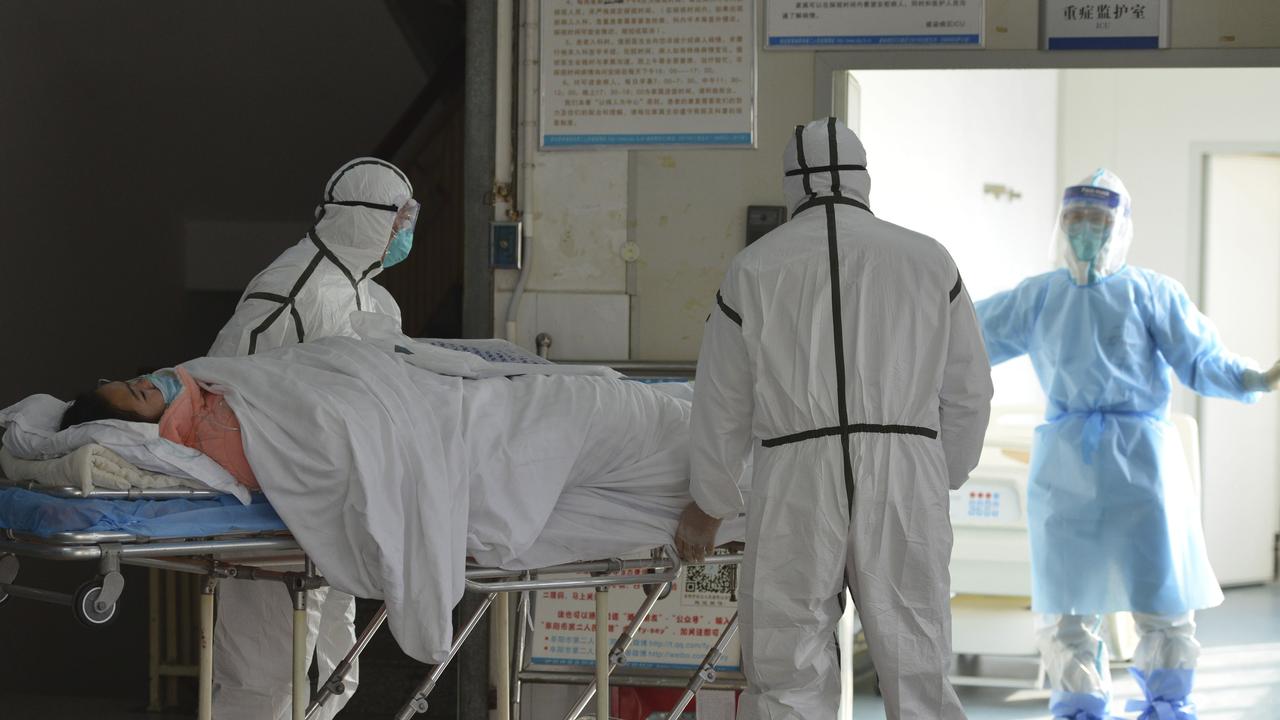
Arriving travellers will be issued with masks and information and tested with thermometers.
“It provides additional reassurance to the Australian public that we are absolutely determined to deal with this issue,” Mr Dutton told Sky News.
“We have been decisive in making these decisions to get us to this point and we’ll do what ever is necessary to keep Australians safe.
NO FEE FOR CHINA EVACUATION
Australians evacuated from China’s coronavirus ground zero will no longer have to fork out $1000 for the cost of the emergency flight to Christmas Island.
Treasurer Josh Frydenberg announced the change after the federal government was initially criticised for the plan to charge desperate Australians in the locked-down Hubei province for a seat on the Qantas 747 being chartered to fly into Wuhan and rescue them.
“We’re not (charging people),” Mr Frydenberg told the ABC.
“The Department of Foreign Affairs have said publicly that they provided the incorrect information originally, particularly about the arrangements that were in place when people came out of Cairo during the Arab Spring.”
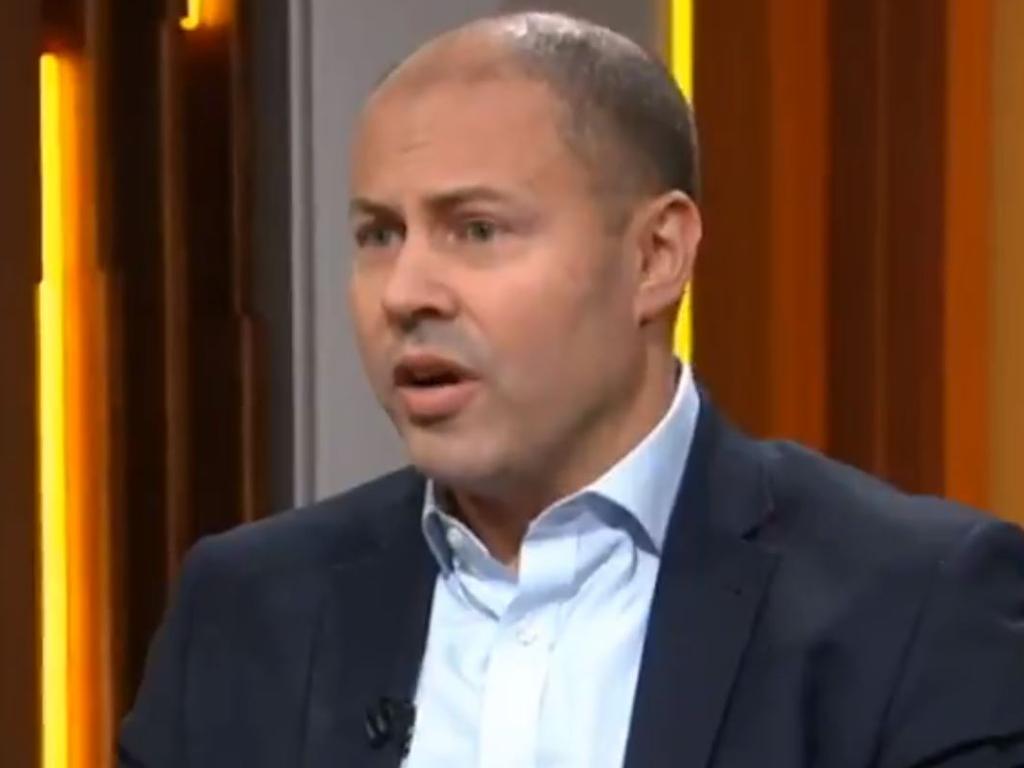
Last week The Daily Telegraph put it to DFAT that Australians evacuated from Cairo in 2011 were not charged a fee for the flight, but a spokesman said that was not the case.
Prime Minister Scott Morrison and Home Affairs Minister Peter Dutton also both told media it was normal practice for Australians to be charged a nominal fee for assistance.
But Mr Frydenberg said their comments were based on advice now known to be wrong.
“We won’t be charging, those people will be able to come to Australia without a cost incurred,” he said.
“It’s very clear that the advice that we got originally was incorrect.
“They do a fantastic job the Department of Foreign Affairs, we had an (National Security Committee) meeting and in light of that information, that correct information there won’t be a charge.”
ON THE GROUND IN CHRISTMAS ISLAND QUARANTINE ZONE
Earlier, Medics arrived at Christmas Island aboard an RAAF plane, effectively bringing a portable hospital to monitor and treat Australians from Wuhan.
Ausmat mission team leader Dan Holmes confirmed he and 22 other medical staff – including paediatricians, nurses and pharmacists – would be isolated inside the Christmas Island detention centre with an unknown number of Australians from the Chinese province where the
Wuhan coronavirus took hold.
Australians from Wuhan were expected on Monday.
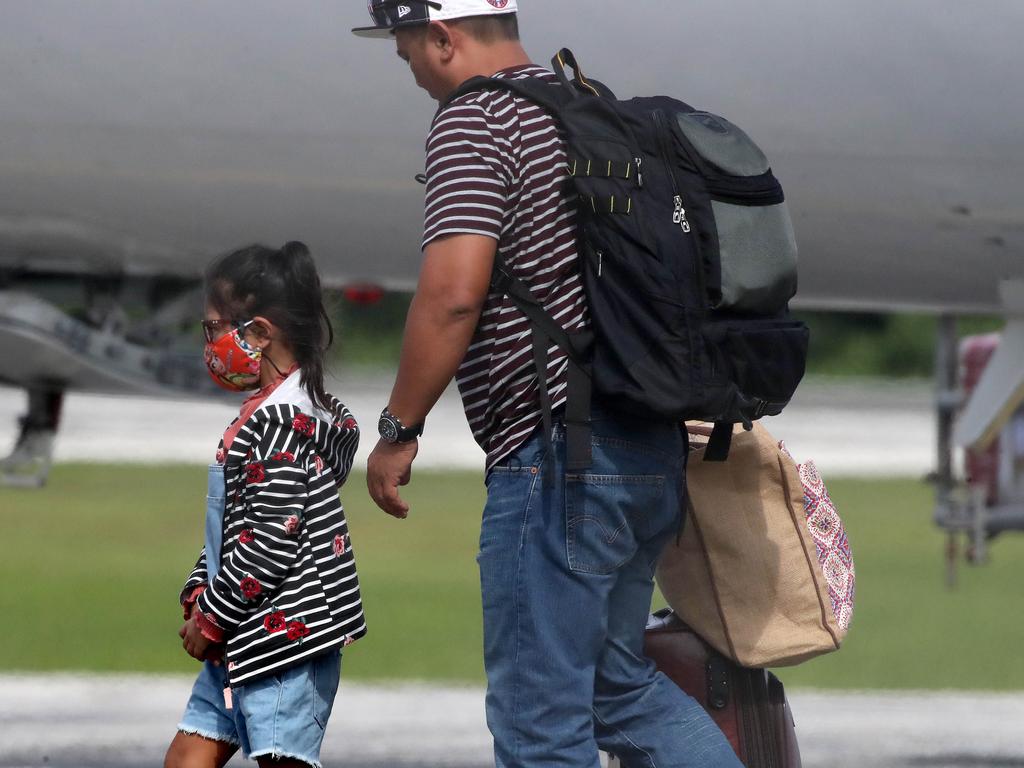
Once the Australians arrived and were taken to the detention centre in the north west corner of the Australian territory, Dr Holmes said he and his colleagues in the medical team would not leave the detention centre in the north west corner of the island for the duration of the monitoring period.
“What we do know is that there will be a number of Australian citizens coming to Christmas Island they will have been in the area that novel coronavirus has started,” Dr Holmes said.
“What we are expecting is generally people who are well but people who are at risk of developing symptoms.
“So we are at the early stages of planning what that looks like, what we need to do but Ausmat has a long track record of dealing with medical emergencies and medical problems.
“With a bit of luck everyone will be well for the entire two week period that they are here and they will go home happy and well but we are prepared for any circumstance.”
Dr Holmes said the team would screen and monitor the arrivals.
Christmas Island’s detention centre has never been used as a quarantine station. Diseases including tuberculosis were occasionally detected among asylum seekers held there during the sustained wave of boat arrivals between 2008 and 2013.
There were no known instances of those illnesses infecting detention centre staff or residents.
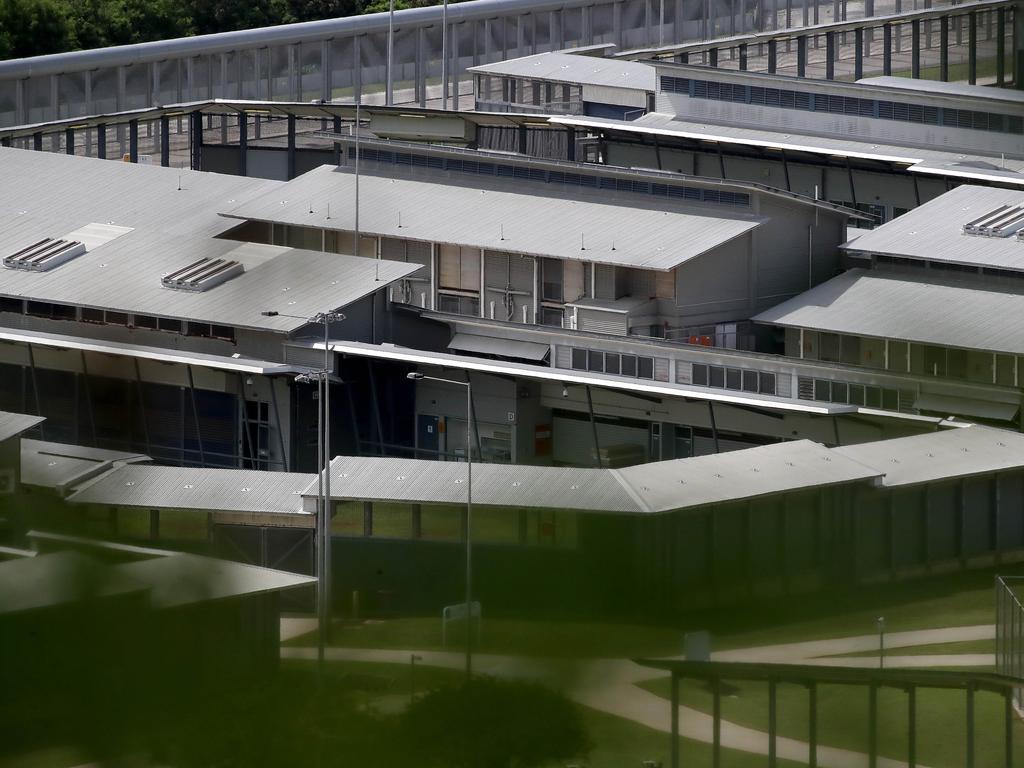
Meanwhile, Qantas pledged to suspend its services to Beijing and Shanghai from next Sunday due to restrictions imposed by other countries due to the coronavirus.
North America, Europe and Asian Airlines have all cancelled flights to China in recent days as authorities try and contain the spread of the coronavirus.
Mr Morrison said the Government anticipated the ban would have a significant impact on tourist arrivals and broader economic impacts.
“That is not our first concern at the moment but we are very mindful of it,” he said.
According to Tourism Research Australia, more than 1.3 million Chinese tourists visited Australia last year, not including children. Collectively, Chinese tourists account for more than 15 per cent of the total inbound tourism market and spent $11.5 billion.
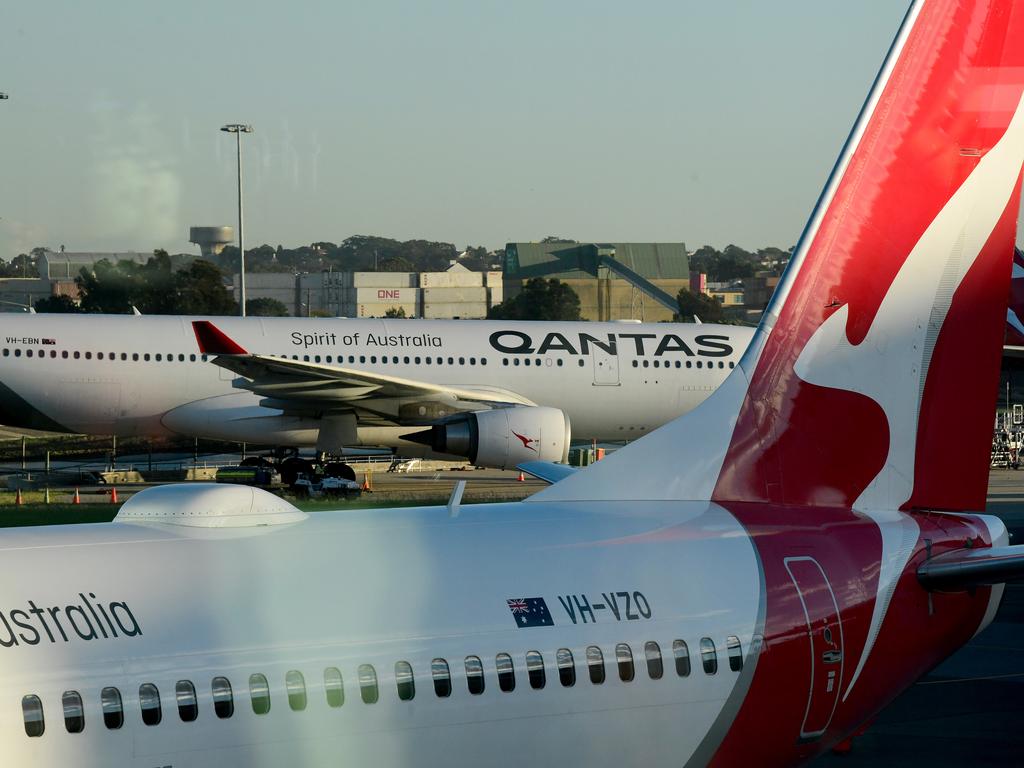
With the new academic year about to start, the ban is also expected to hit Australia’s higher education sector. There were more than 442,000 international students studying in Australia in 2019, more than 164,000 were from China.
Education Minister Dan Tehan will work with the higher-education sector to find ways to accommodate Chinese students due to arrive in Australia to study.
Universities will be asked to delay the start date of the academic year or provide online courses until the ban is lifted.
Mr Morrison said he had informed all the Premiers and Chief Ministers about the ban.
Earlier in the day Queensland Premier Annastacia Palaszczuk called on the federal government to stop all flights arriving from China in a bid to stop the spread of the virus.
It came as the first case of coronavirus was recorded in the UK.
A York student is one of the two people infected with coronavirus as the university calls for calm amid “anxiety” on campus.
“Public Health England (PHE) have informed us that one of the two individuals to have tested positive for coronavirus is a student at the University of York,” a university spokesman said. “We understand this development will cause concern and anxiety among our students, staff, and the wider community.”
QANTAS SUSPENDS CHINA FLIGHTS
Earlier today Qantas announced it will suspend two direct services to mainland China.
The airline will temporarily cease flying to Beijing and Shanghai from Sydney between February 9 and March 29.
Strict flying conditions imposed by other countries brought on by the global health scare surrounding coronavirus have caused “logistical challenges” for Qantas.
“This follows entry restrictions imposed by countries including Singapore and the United States, which impact the movement of crew who work across the Qantas International network,” the airline said in a statement.
“These entry restrictions pose significant logistical challenges for rostering crew to operate mainland China services, leading to the need to temporarily suspend these flights.”
Explaining why they are waiting eight days before implementing the suspension, Qantas says it is “working to balance high passenger numbers in both directions – including Australian residents wanting to return home from China – with the various travel restrictions being applied.”
The move comes after The Daily Telegraph questioned why Qantas hadn’t followed other international airlines in suspending flights to China. Wuhan, a city in the country’s central province of Hubei, is the epicentre of the coronavirus outbreak.
British Airways, Delta and United are among a number of major carriers who have halted all travel to mainland China.
The Transport Workers Union called for the suspension of all direct flights from China over the coronavirus outbreak despite top health bureaucrats saying the measure would be ineffective.
The backflip comes after Qantas employees were threatened with disciplinary action if they refused to work on flights from China due to concerns about the potentially fatal virus.
The virus has spread to at least 18 countries including Australia, which has nine confirmed cases with more expected.
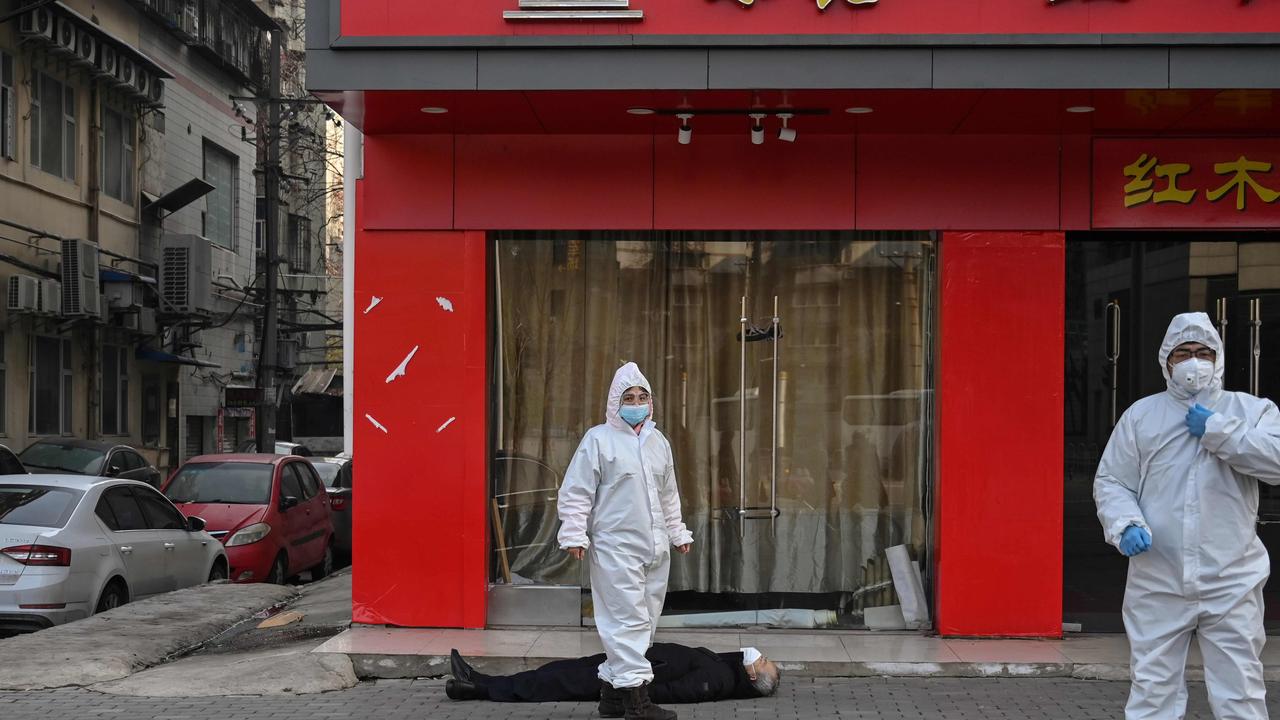
MORE NEWS:
Australian investors brace for virus impact
How the world is racing to contain the coronavirus
A Qantas 747 flight reportedly landed in Hong Kong — where schools and kindergartens have been suspended until March 2 at the earliest — at 8am Saturday morning (AEDT) on its way to Wuhan to rescue 600 Aussies locked down in the city where the virus originated.
Qantas is just one of 10 airlines flying a total of 50 flights a day to and from China. The flying kangaroo makes up just 10 per cent of the total direct flights to China with China Southern, China Eastern, Air China and Hainan Airlines doing the bulk of the flying.
Earlier Prime Minister Scott Morrison announced the government’s plan to take evacuees from Wuhan to Christmas Island where they would be detained for 14 days.
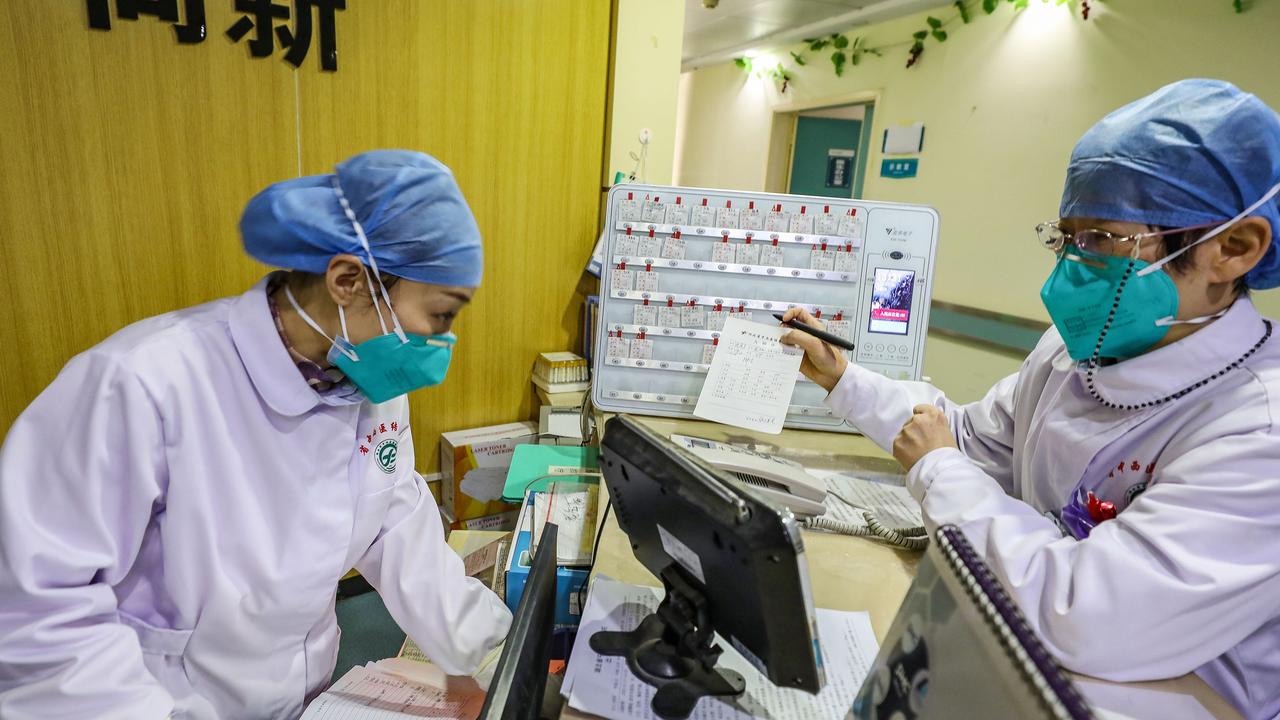
As an Australian scientist warned the virus could become more deadly as it spreads, Nine Entertainment newspapers reported that a panel of economists believed the bushfires alone could knock up to 0.5 per cent – almost $10 billion – from GDP, while the coronavirus could clip another 0.2 per cent from growth over the same period.
‘STOP CHINA FLIGHTS INTO AUSTRALIA’
Meanwhile, Beijing sharply criticised the United States for warning American citizens to avoid China and for urging those already there to leave due to the coronavirus health emergency.
China last week stopped flights from Wuhan – the epicentre of the virus – but the TWU now wants Prime Minister Scott Morrison to intervene and restrict all incoming flights from China.
The union’s national secretary, Michael Kaine, said there is a high level of uncertainty about the virus and the “precautionary principle” should apply.
“There has been a dearth of information from this federal government to airports and to airlines about what it is precisely they should do,” he told reporters in Sydney.
“There’s one thing that we can do and one step that we could take and should take and that is to cut off flights from the source of the virus. “
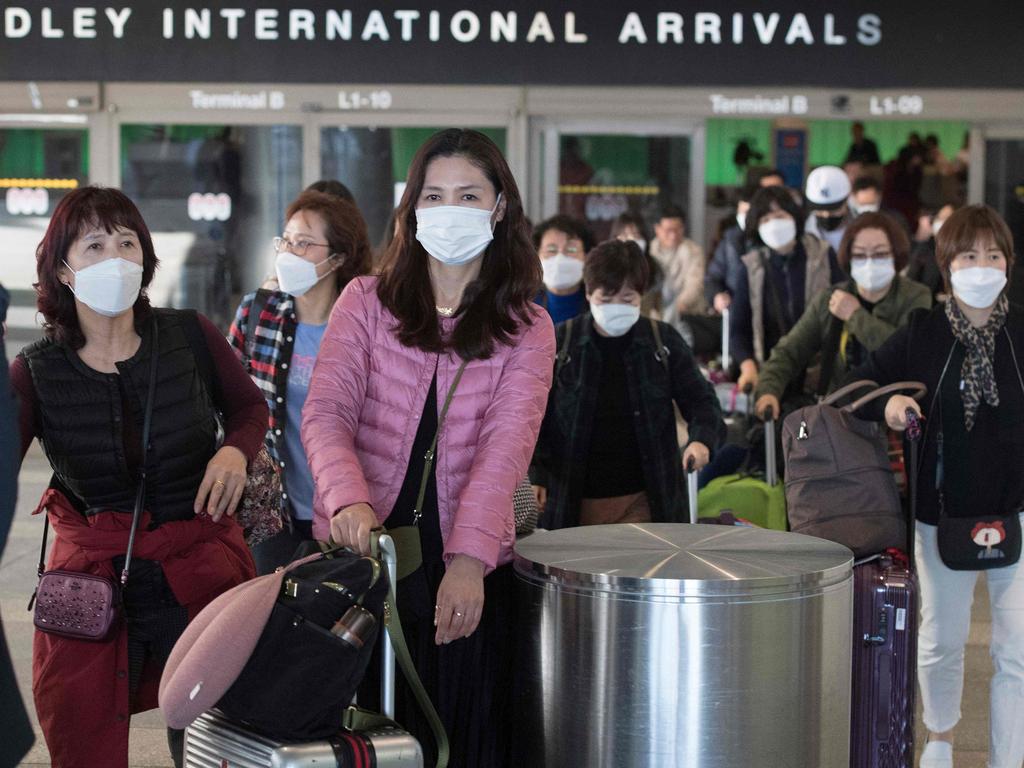
“We should take the lead here and stop flights into Australia from China right now.”
Airlines around the world have stopped flights from mainland China including American Airlines and British Airways, Mr Kaine said.
CHINA ADMITS CONTAINMENT MISTAKES
The Communist Party chief in the city at the centre of China’s coronavirus outbreak says measures should have been taken earlier to contain it, Reuters reported.
Ma Guoqiang said in a televised interview the impact of the virus on the rest of China and the world “would have been less” if the containment measures had been implemented sooner.
The outbreak that began in Wuhan, capital of China’s central province of Hubei, has so far killed 294 people, all in China.
The virus has affected more than 11,791 people in mainland China and more than 11,900 worldwide, surpassing the total from the 2002-2003 SARS epidemic.
According to the Centre for Disease Control, SARS (or Severe Acute Respiratory Syndrome) spread to 29 countries, where 8,096 people were infected with the virus and 774 died. The virus was contained in July 2003 and since 2004 there have been no known cases of SARS reported anywhere in the world.
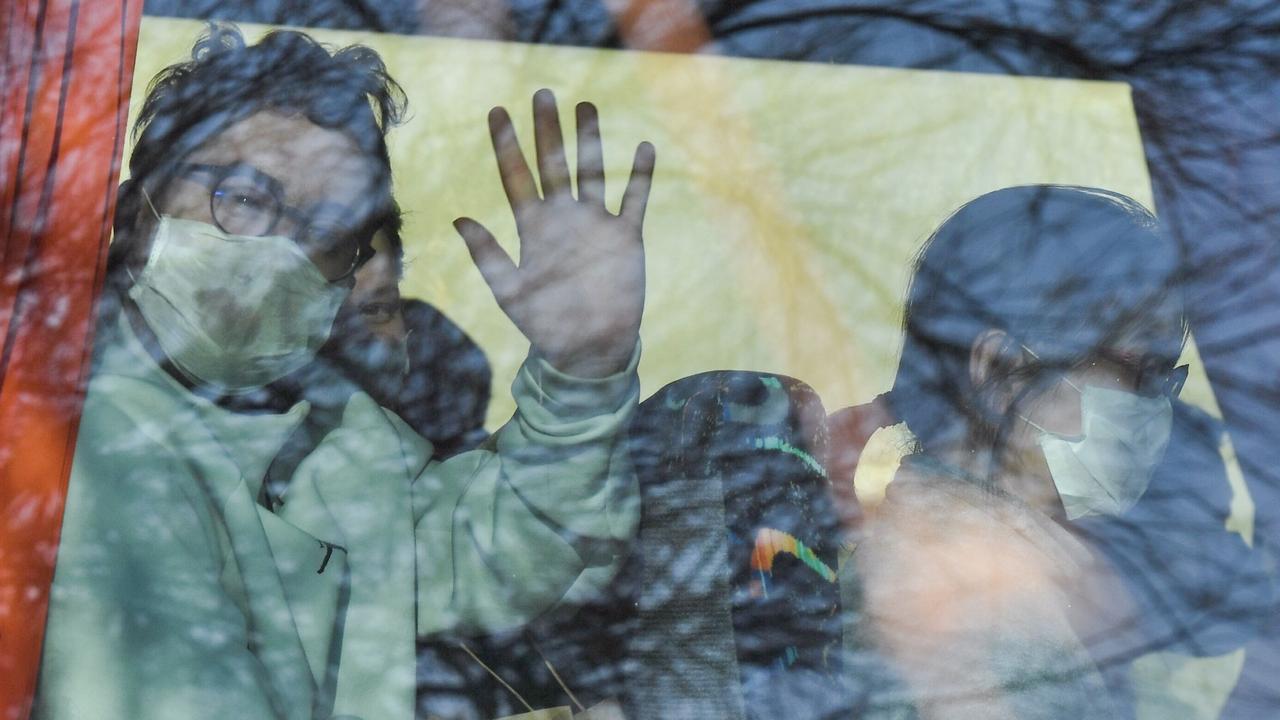
Wuhan mayor Zhou Xianwang said the task of containing and preventing the spread of the coronavirus outbreak in the city remains “severe and complex”.
At the same televised news conference, Vice Mayor Xu Honglan said supplies of masks and other medical resources were still inadequate.
The Italian government declared a state of emergency on Friday to fast-track after two cases were confirmed in Rome. Italy had said it was stopping all flights to and from China following the news that two Chinese tourists holidaying in Italy had tested positive for the virus.
Pakistani authorities say that they are halting all flights to and from China with immediate effect in light of the outbreak of a new virus.
A 14-day travel restriction is being imposed on travellers from China in Trinidad and Tobago. Israel has also barred all flights from China, while Russia said it was closing its Far Eastern border with China over the outbreak.
The TWA has written to airports, airlines and the federal government about the matter.
It’s understood that Qantas employees were last week formally directed to continue working on aircraft operating from airports in China.
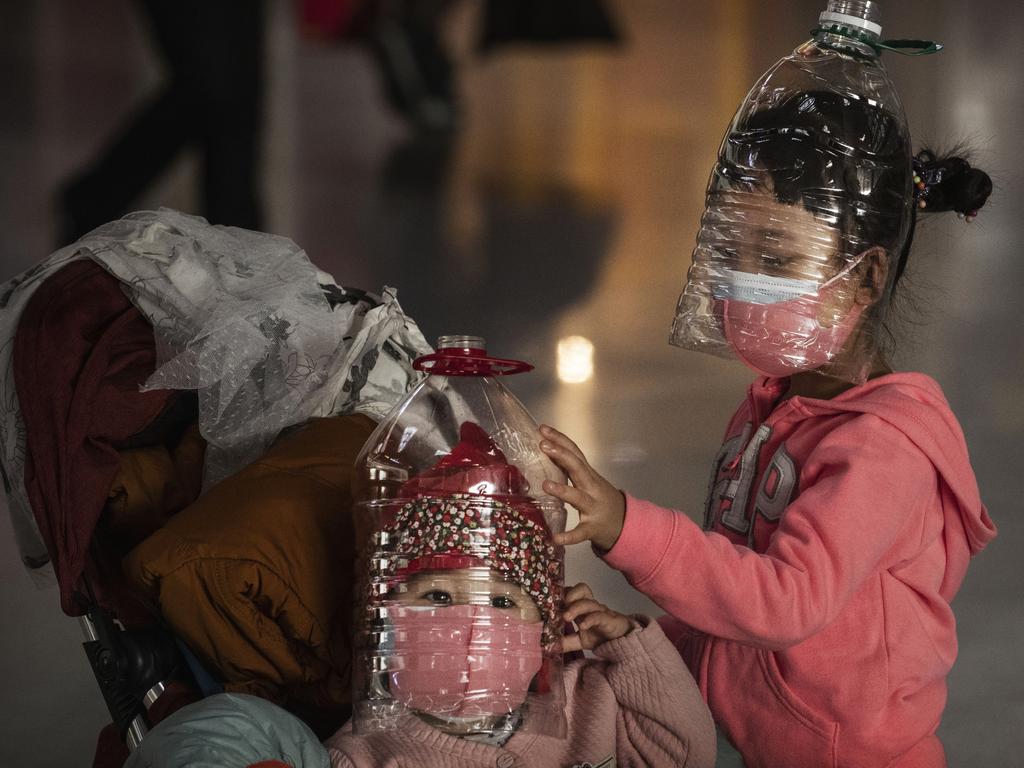
The airline made it clear that if employees fail to do so they may face disciplinary action – including being sacked.
Virgin Australia does not operate flights to and from mainland China and from February 11 will only operate daily flights from Sydney to Hong Kong, dropping the Melbourne route.
Crews are maintaining high hygiene standards including hand sanitising and cough etiquette, a Virgin Australia spokeswoman said in a statement.
CORONAVIRUS ‘DEADLIER THAN IT LOOKS’, VIROLOGIST WARNS
The man leading Australia’s attempts to make a vaccine for the coronavirus has warned that the contagion could become more deadly as it spreads.
Australian Animal Health Laboratory director Professor Trevor Drew said early indications that the disease was killing less than 2 per cent of victims in China could be misleading because of its potential to evolve quickly and become more dangerous, The Australian reports.
His comments came as the first batch of a world-first Australian-grown virus arrived at a CSIRO lab near Melbourne, paving the way for a fast-tracked vaccine to enter preclinical trials within weeks.
He said the Wuhan virus was really a “cloud” of closely matched pathogens rather than a single virus.
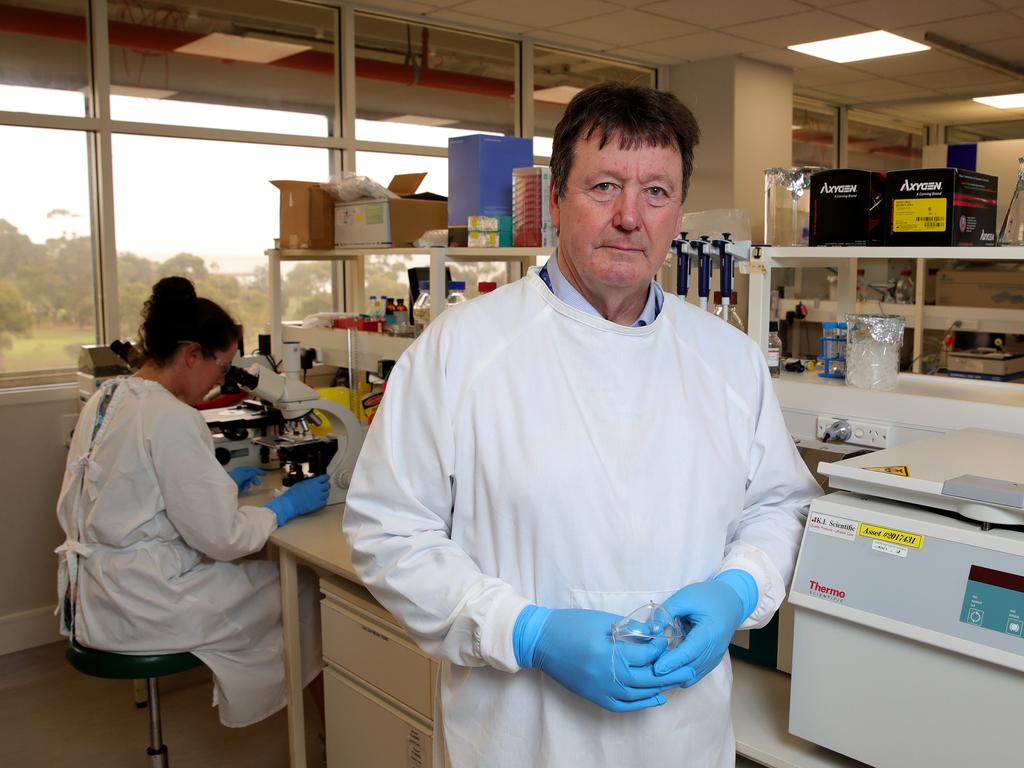
In densely populated China, it could rapidly mutate and become more deadly.
“You may well find that more virulent viruses emerge from that cloud,” he told The Australian.
SARS in 2003 and MERS in 2012, were both caused by coronaviruses. Middle East respiratory syndrome had a reported fatality rate of more than 30 per cent in the hot zone on the Arabian peninsula.
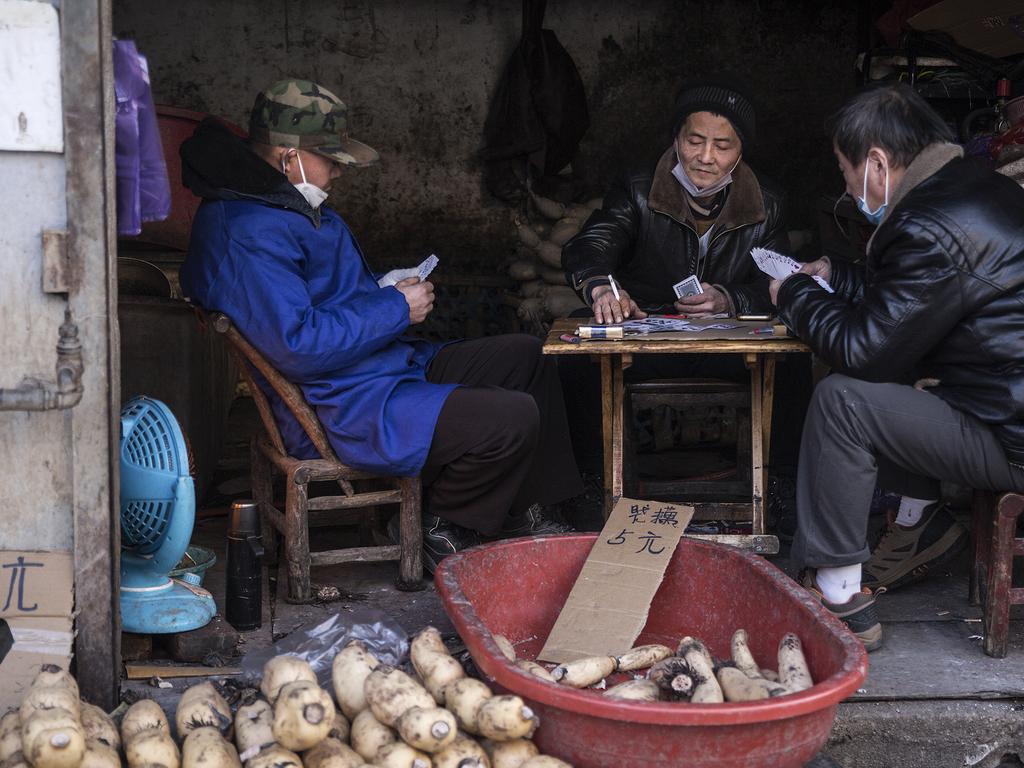
The Wuhan coronavirus is suspected by scientists to have jumped from bats to people in one of the city’s live animal markets in the same way that SARS erupted in southern China 16 years ago, killing up to 7 per cent of those who contracted the disease.
Professor Drew said the history of porcine reproductive and respiratory syndrome in pigs showed how coronavirus could become more lethal over time, in sharp contrast to the usual progression of an epidemic.
BOY DIES ALONE AFTER FAMILY SENT TO QUARANTINE
A Chinese boy afflicted with severe cerebral palsy died after he was left alone for six days when his father and brother were sent to quarantine after coming down with coronavirus symptoms.
The boy, Yan Cheng, 17, could not move independently because of his cerebral palsy. He was left on his own for six days while his father and brother were tested for the potentially deadly coronavirus.
Yan died alone in his family home 100km north of Wuhan.
Disabled teen Yan Cheng was left alone while his father & brother were sent to a quarantine facility for coronavirus. His father suspected he would be neglected by local authorities & sent messages pleading for people to take care of him. He died. https://t.co/qT2aPzSZ3w
— Gabrielle Peters she/herâ™¿ï¸ (@mssinenomine) January 31, 2020
He suffered from severe cerebral palsy which greatly inhibited his ability to move independently and limited his speech, with the severity of his symptoms making around-the-clock care essential.
He was left at home in bed alone after his father, Yan Xiaowen, came down with a fever along with his younger son — with the pair isolated in a quarantine facility 25km away from their home suspected to be carrying the coronavirus.
Unable to get back to his son, his father used the social media platform Weibo to plea with members of the public to help as he feared village officials were neglecting him.
“My eldest son has cerebral palsy, and can’t move his body. He can’t talk, he can’t look after himself,” Yan Xiaowen posted.
“Without someone feeding him, and without a protective suit from the local authorities and hospital, I worry that my child can’t make it any longer.”
Local officials allegedly only fed Yan Cheng twice in the six days he was on his own but were apparently planning to move the boy closer to his father to receive proper help the same afternoon he died.
JETSTAR PASSENGERS TELL OF HOBART TARMAC ORDEAL
Passengers trapped on board a Hobart Jetstar flight for about three hours with an unwell passenger from China have spoken of their ordeal.
A male passenger is being medically assessed to rule out coronavirus after becoming ill on the flight.
“Jetstar were very good about it. They were doing their best to keep everyone calm. It was a tricky situation for them,” Lachlan Rule, of Melbourne, told The Mercury.
“They cleared everyone off and the unwell passenger was kept on at the back of the plane.”
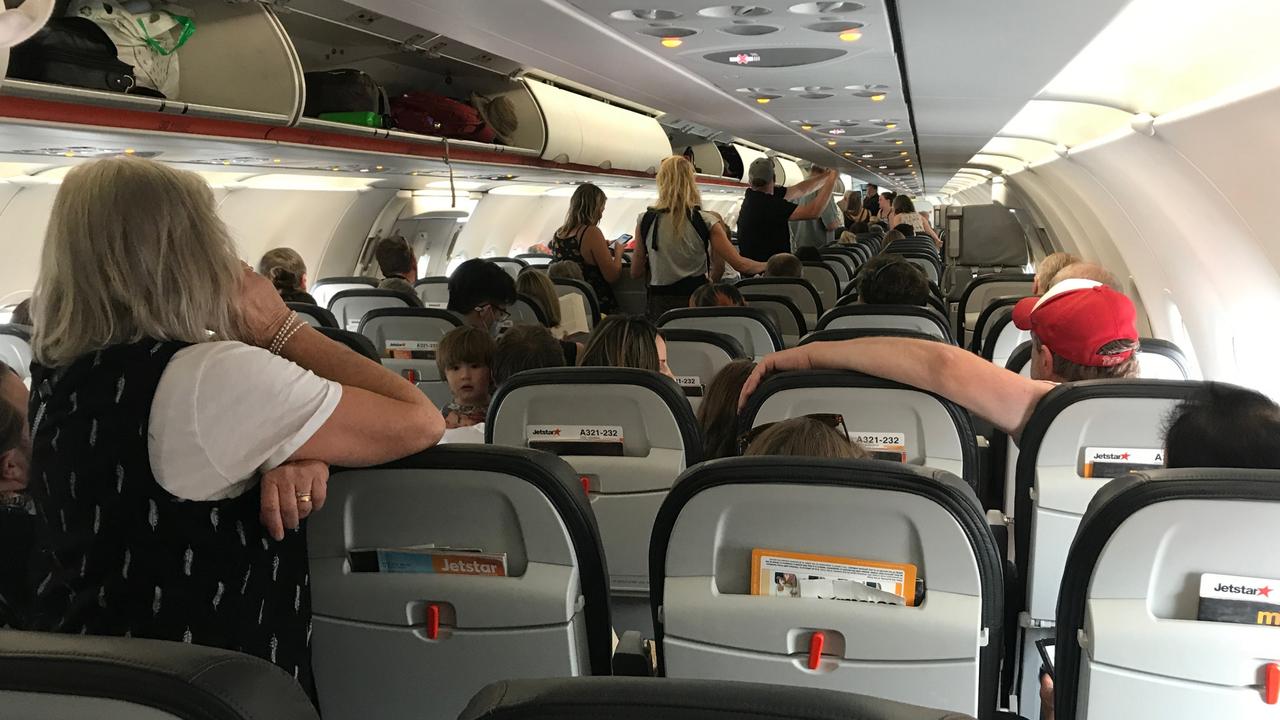
QLD STUDENTS ISOLATED AFTER VIRUS SCARE
Four Queensland state school students are in isolation after travelling on the same Tiger Airways flight with two passengers who have confirmed cases of coronavirus.
The Courier Mail reports the students are not showing symptoms as of Friday and are in self-isolation as a precaution.
The department would not confirm if the students had been at school over the past two days.
It is understood a parent is also in isolation after travelling on a Tiger Airways flight.
PASSENGERS’ FEARS ON BOARD CHINA-SYDNEY FLIGHT
Passengers on Friday’s Air China flight from Beijing to Sydney had conflicting feelings about their safety from the deadly coronavirus.
Hitomi Son was on the flight, and said that she was scared about transmission of the virus.
“Of course I’m worried, in China there’s so many people affected. We can’t go out, we have to stay home, we couldn't do anything,” Hitomi said.
“I think they should stop flights between China and Sydney, because of what’s happening,” she said.
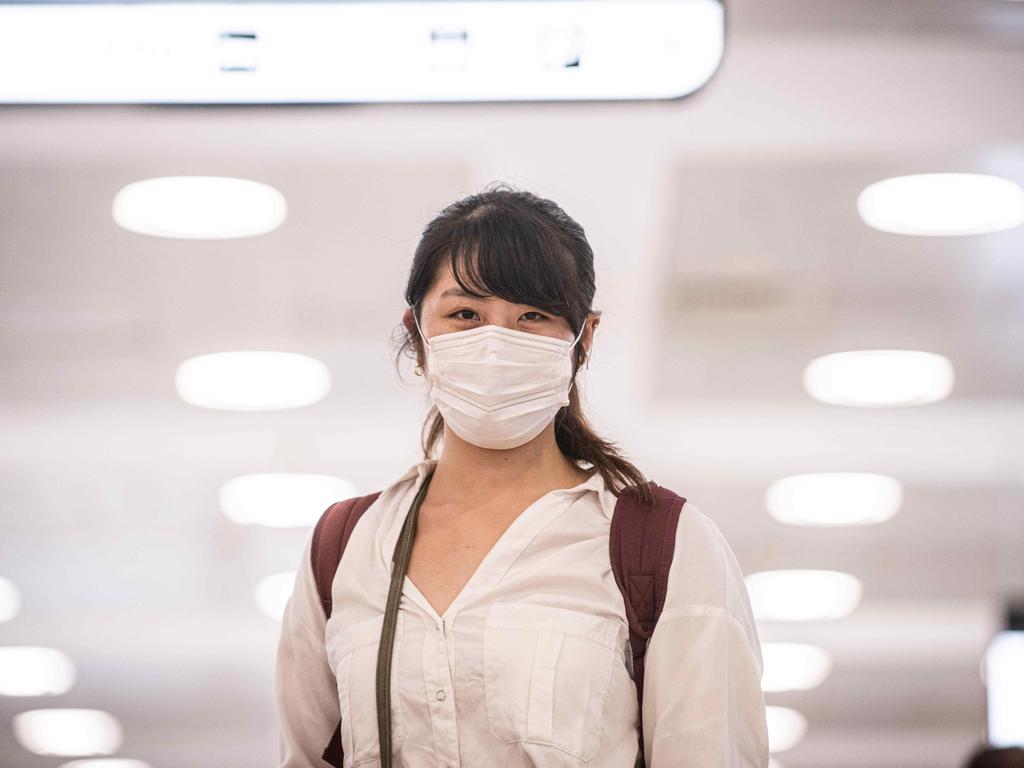
Fellow passenger James Jing said he was “afraid” of the transmission of the virus on the flight.
“I was worried because everyone is sitting so close together on the flight. I think there should be more limitation, check peoples backgrounds and see if they are healthy or not,” James said.
“We need more health tests.”
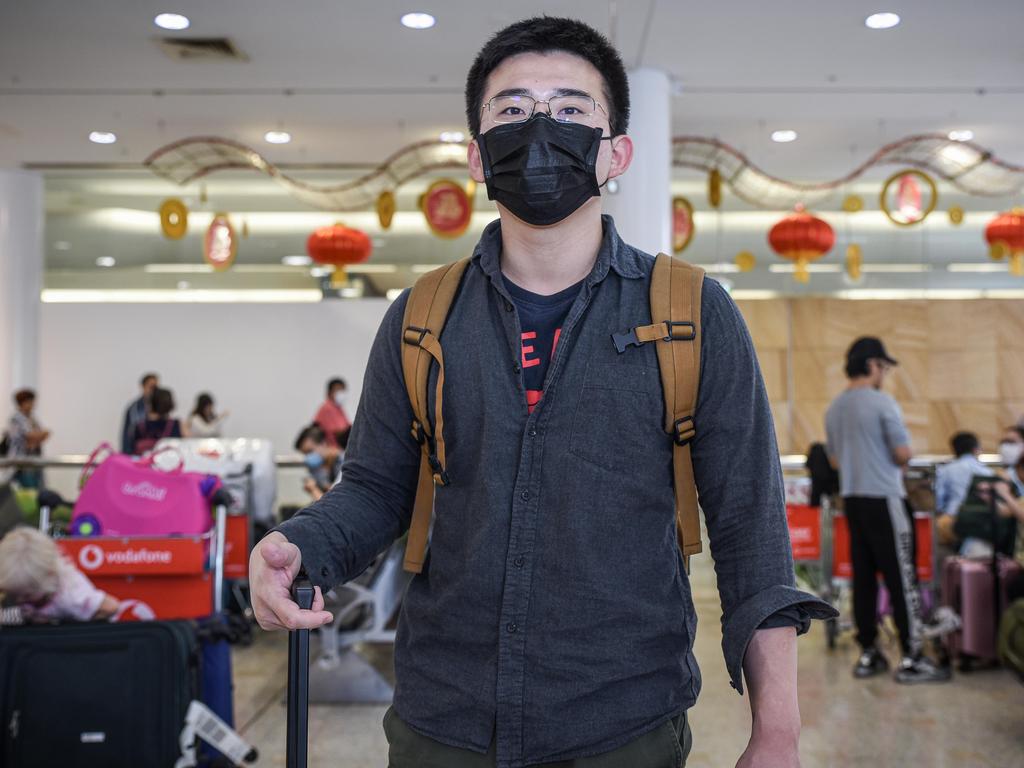
Scarlett Son Fan said that she felt protected by the masks, and that closing the borders would be too difficult.
“Security took a lot more time than usual but I wasn’t worried because I felt protected by the mask,” Scarlett said.
“It’s safe here … if you stop flights it will cause major problems for the students here. I think the borders should stay open,” she said.
Lu Chong flew to Sydney to visit her son William. With her son translating, she told The Daily Telegraph that she took three body temperature tests before arriving in Sydney.
“First before security we did the body temperature test, then through customs and then again on the plane,” she said.
“I wasn’t worried … I think even the masks are unnecessary because there is so much testing and people would not go to the airport if they were sick.
“In China all the public activities and festivals are shut down, people are staying home and making sure they are well. I’m very comforted because there are so many resources going into this war,” she said.
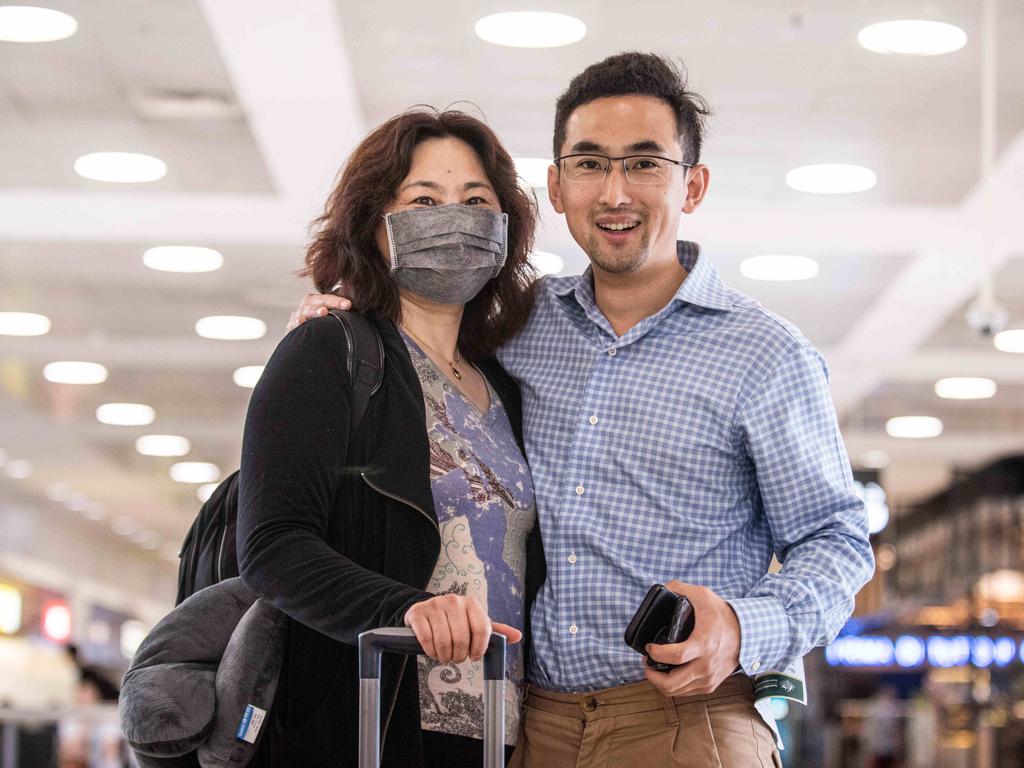
“There are eight other people who were in that tour group and they are all currently in isolation in the Gold Coast University Hospital,” Queensland’s Chief Health Officer Jeannette Young said.
“Four of them are unwell and being tested today (Friday).”
CSIRO TESTS POTENTIAL VACCINES
The CSIRO is set to test potential vaccines for the deadly coronavirus, working alongside the Coalition for Epidemic Preparedness Innovations (CEPI), a group aiming to derail epidemics by speeding up the developments of vaccines.
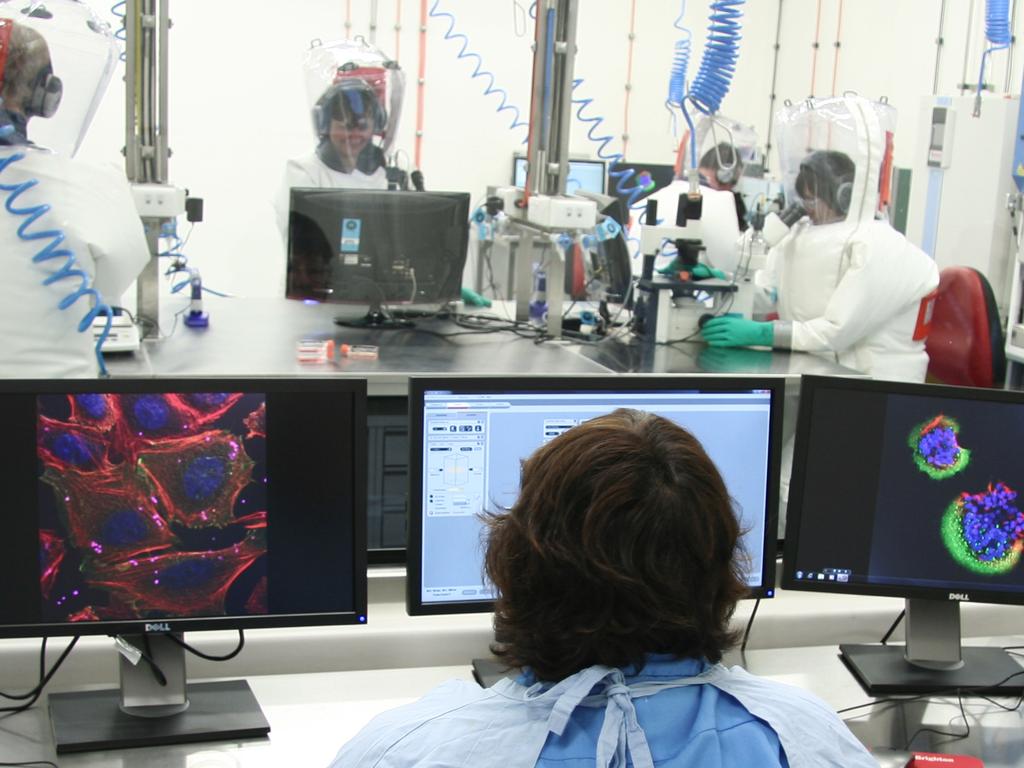
The work will be conducted at the Australian Animal Health Laboratory in Geelong, the only Physical Containment Level 4 (PC4) lab in Australia, and one of five in the world.
CSIRO Chief Executive Dr Larry Marshall said the organisation would help bring “every branch of science and experts from across the system to tackle this major global health challenge.”
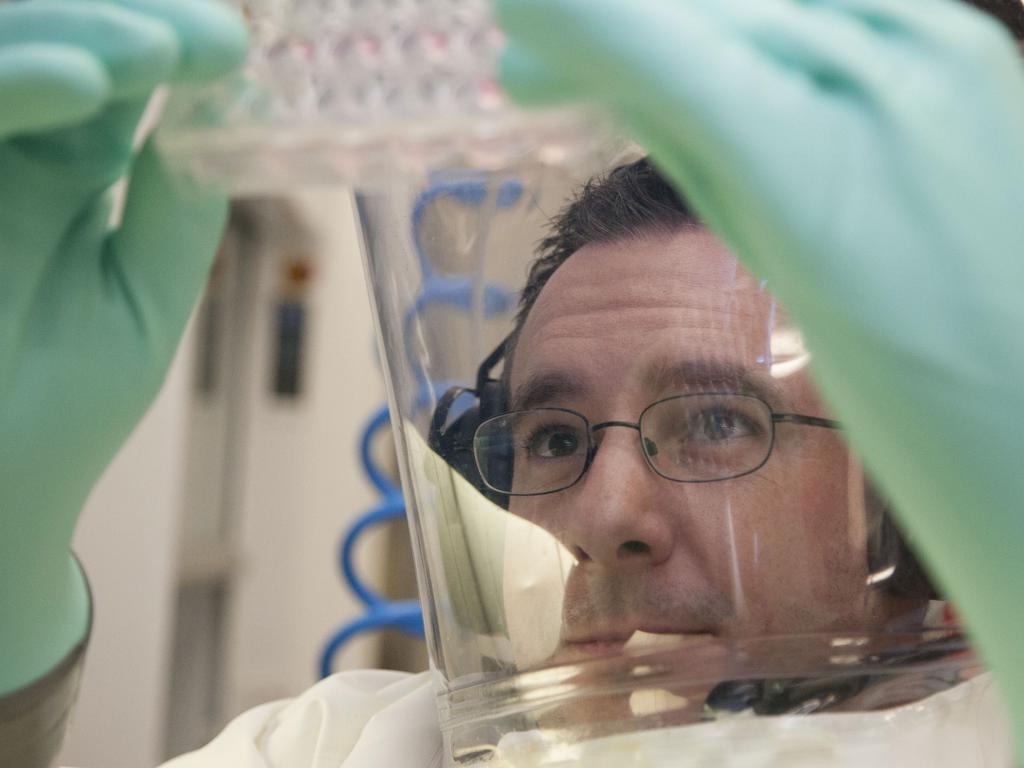
CSIRO Health and Biosecurity director Dr Rob Grenfell added the researched aimed to paint a clearer picture of the new coronavirus, including how long it takes to develop and replicate, how it impacts on the respiratory system and how it can be transmitted.
“Infectious diseases like the new coronavirus are complex and pose a major challenge to human health,” he said.
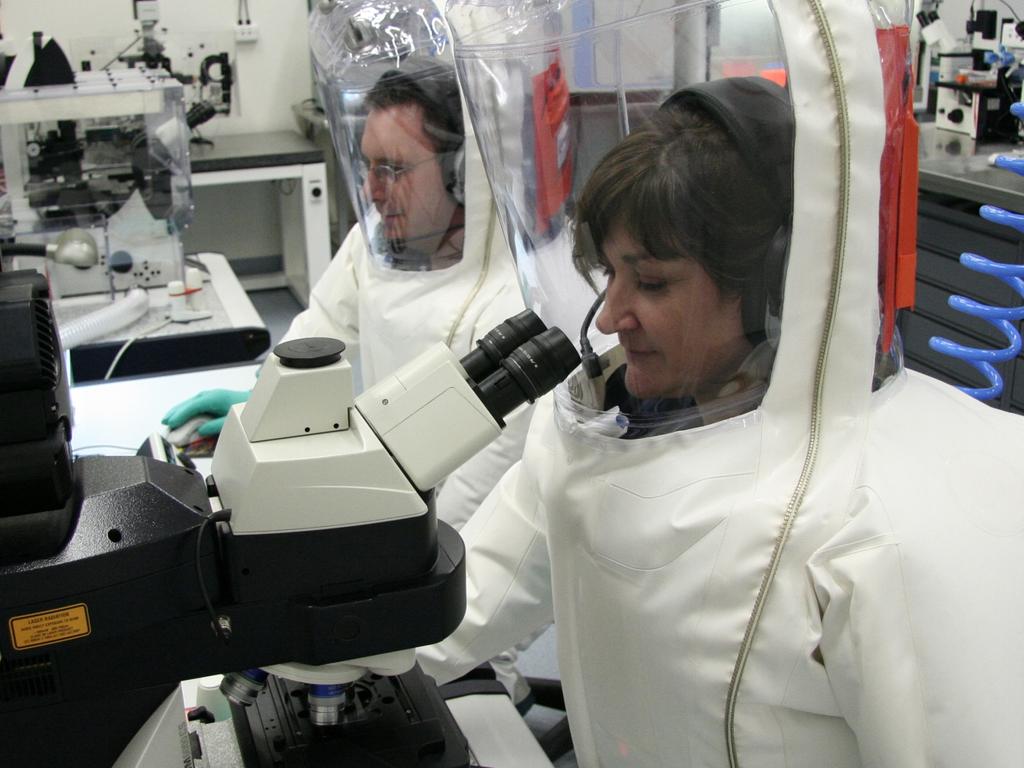
“Through this project we will use our globally unique scientific capability to answer key questions about how the coronavirus behaves.”
The CSIRO team will then begin testing the new potential vaccines once where the virus originated and how it spreads becomes clearer.
– with AAP






